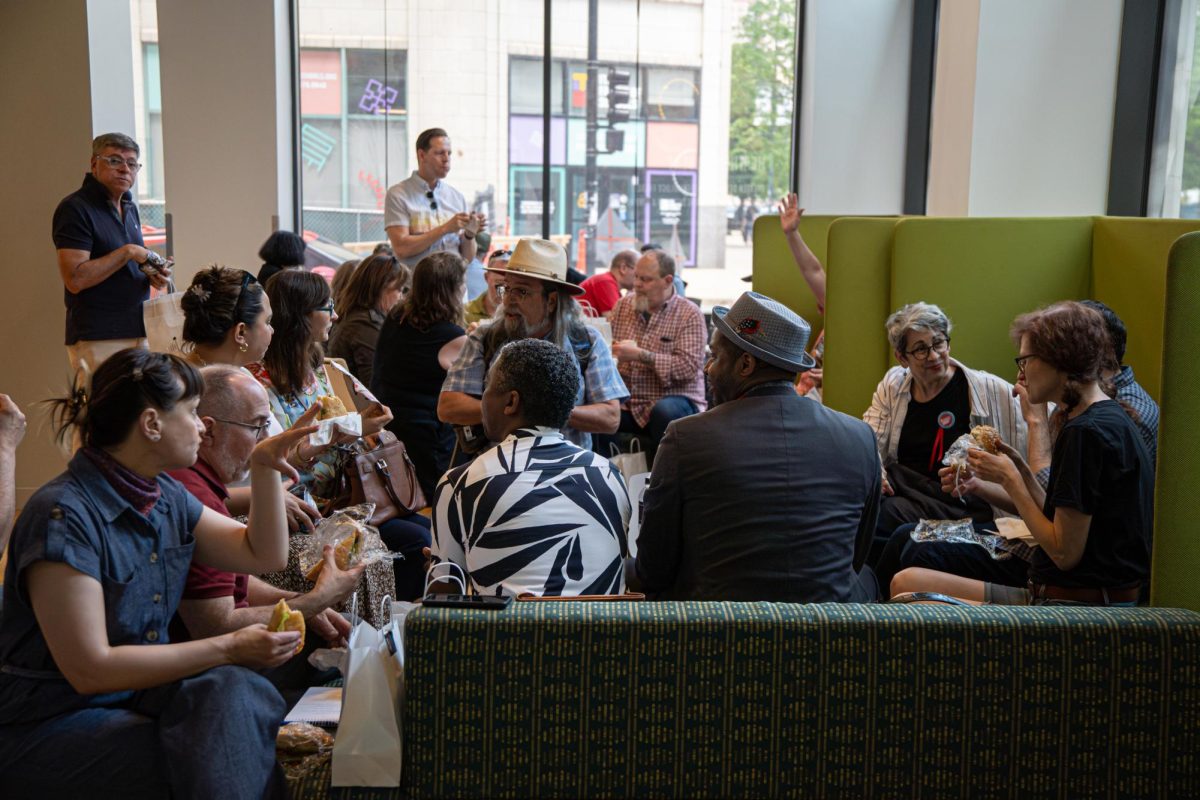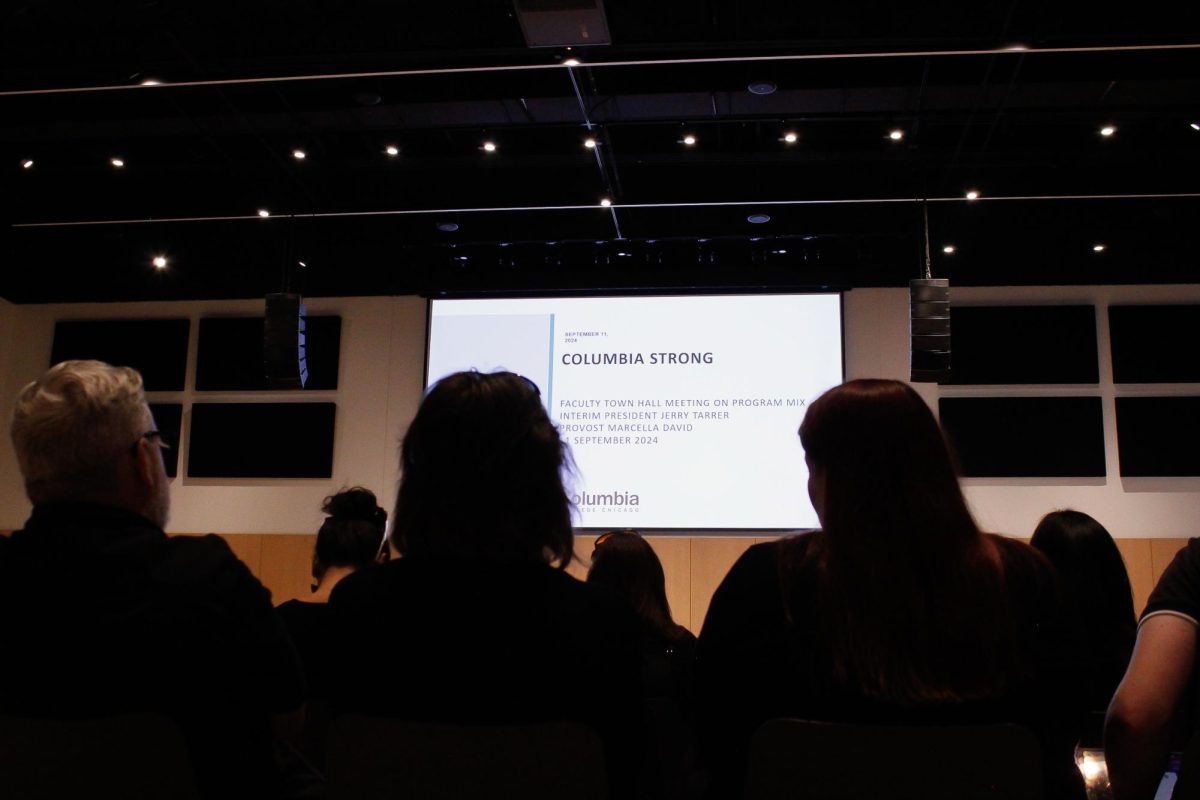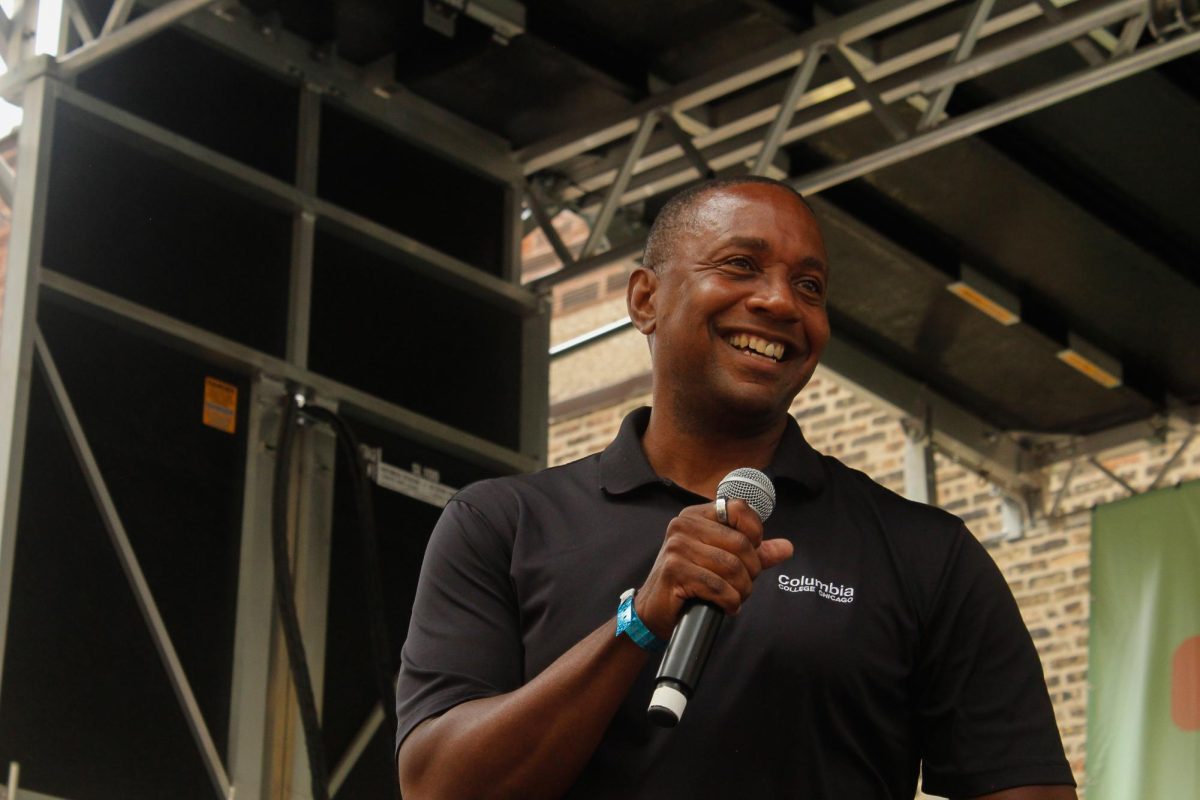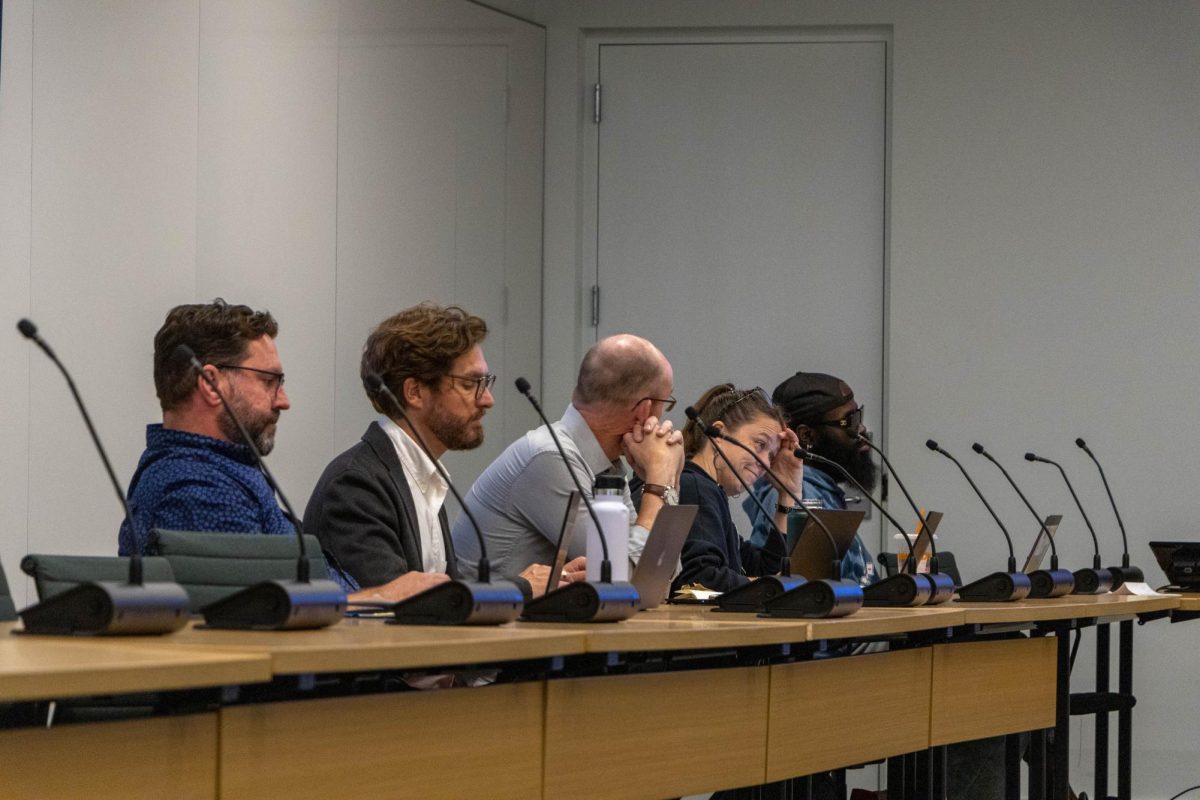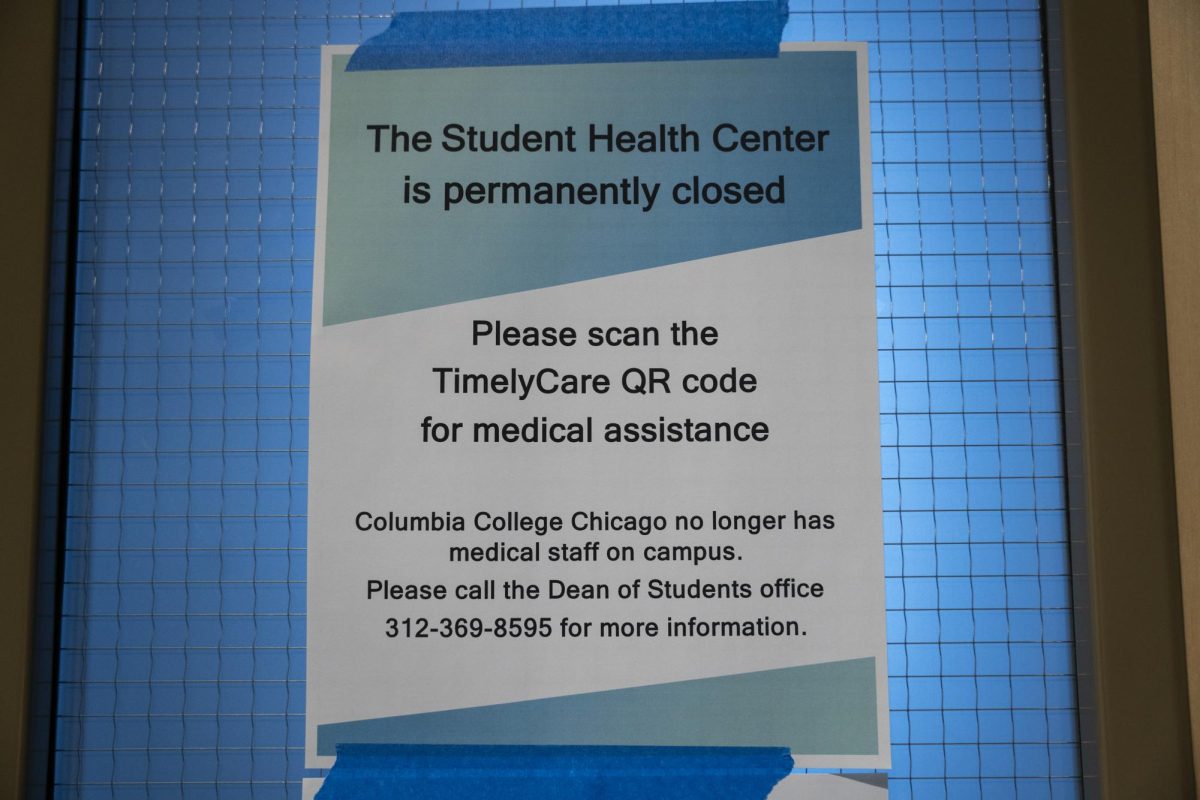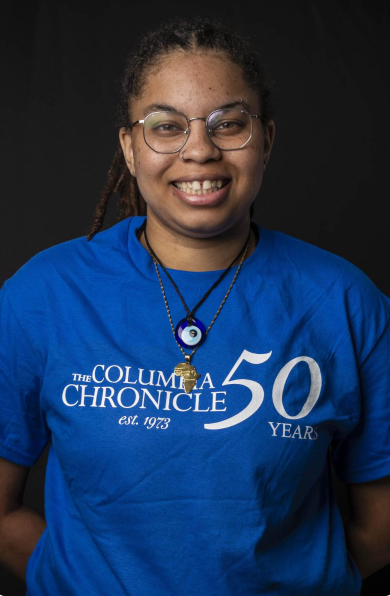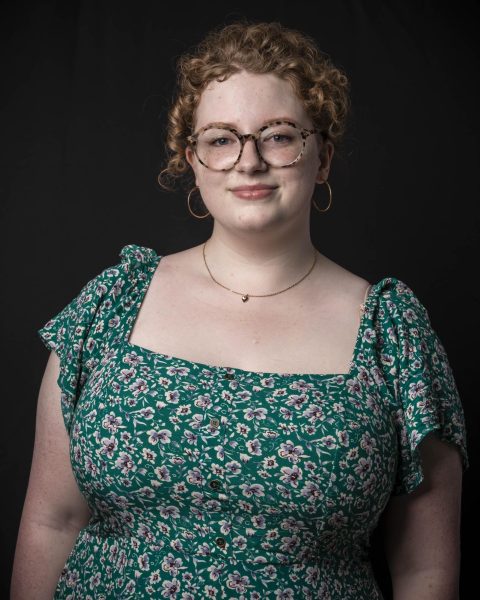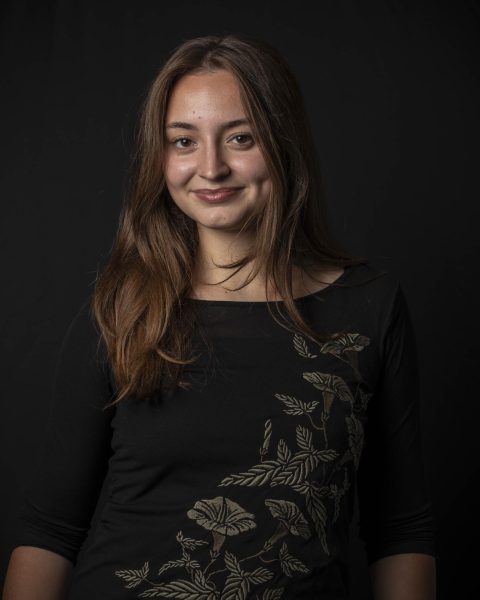The day after the Board of Trustees voted to approve President and CEO Kwang-Wu Kim’s massive cost-cutting measures to address the $38 million deficit, full-time faculty had their first chance to ask senior administrators about the timeline for the changes and how they will be impacted by the board’s declaration of “adverse circumstance.”
In the meeting on Tuesday, May 21 at 1104 S. Wabash Ave., Senior Vice President and Provost Marcella David and Senior Vice President of Business Affairs and CFO Jerry Tarrer discussed the implementation of the recommendations from Kim’s final advisory report.
Despite talks of boycotting at the American Association of University Professors meeting on Friday, May 17, over 100 faculty members turned out to ask questions, packing the Conaway Center a week and a half after the spring semester ended. Several faculty members in attendance wore AAUP buttons.
“There has still not been enough room for true and comprehensive faculty engagement in the massive, seismic changes that are being proposed both for our curriculum and for the structure of the college,” said Joan Giroux, professor in the Art | Design Department and president of the AAUP advocacy chapter at Columbia.
“Adverse circumstance” as outlined in the Statement of Policy, means the college will be able to close programs and lay off full-time, tenured faculty
The board also decided that “adverse circumstance” will remain in effect until they vote otherwise, which faculty have said essentially suspends tenure at the college. David disagreed with that framing.
Giroux said many of the questions and concerns from faculty members were not explicitly answered at the meeting.
“I thought that the answer to the question about tenure was glossing over the fact that the statement of policy expresses that if an adverse circumstance exists that programs can be closed and tenured faculty can be let go without cause,” Giroux said.
The college will reduce its number of full-time faculty through retirements, buyouts and layoffs, according to Kim’s final report.
Those decisions will be made after a program review this summer.
Tarrer announced the college has hired local consulting firm Kaufman Hall to look at all of the program offerings at the college and to identify which degree programs could be eliminated or combined. The firm works primarily with the healthcare industry but also with higher education.
A contract with global turnaround firm AlixPartners fell through after the name of the company was disclosed at a Faculty Senate meeting on April 12.
After Kaufman Hall makes its recommendations, a steering committee will do its own review.
That committee consists of two full-time faculty members, a member of the Board of Trustees, David, Tarrer and Nate Bakkum, senior associate provost and vice president of Academic Affairs. Tarrer will be interim president and CEO on July 2, following Kim’s departure from the college.
Before then, the college expects to announce 100 staff positions that will be eliminated. Of those, 25 are currently vacant.
With the cuts and enrollment projections, David said the college is anticipating the deficit will decrease to $15 million by the fall, just under what it was before the historic part-time faculty strike in the Fall 2023 semester.
The President’s Budget Advisory Board met about the cuts on March 19, as the Chronicle previously reported. The biggest of the proposed personnel cuts were to Student Affairs, Business Affairs and the Provost’s Office.
Those staff layoffs are expected to be announced by June 1.
“The committee had not met before that for about two years, so I look forward to seeing if we are going to have input again. I would love to have more input than just a short three-hour meeting,” said Diana Gorman Jamrozik, associate chair of the American Sign Language Department and member of the president’s Budget Advisory Board. The board met on April 26 but hasn’t met since.
A core committee, headed by Steven Corey, dean of the soon-to-be-dismantled School of Liberal Arts and Sciences, will be reviewing the core curriculum over the summer.
It voted last week to reduce the core requirements from 42 to 30 credits, which was also one of Kim’s recommendations.
The biggest impact will be in the three departments that deliver the core course: English and Creative Writing, Humanities, History, and Social Sciences and Science and Mathematics.
“I’m looking forward to doing the work,” Corey told the Chronicle. “It’s important work.”
Elizabeth Davis-Berg, professor and chair of the Science and Mathematics Department, said she sees a lot of fear among full-time faculty who are worried about their jobs.
“There’s a lot of fear and I think there’s also a lot of faculty who are very frustrated that they’re being asked to work when they don’t know who might be let go,” she said.
Davis-Berg was pleased to hear at the meeting that the college might offer buyouts.
Buyouts have been offered to faculty in the past through the Voluntary Separation Incentive Program. However, faculty with tenure appointments who have not yet earned tenure are not eligible for the program.
Derick D. Jones, Jr., an assistant professor in the Science and Mathematics Department who is on the tenure-track, said they “haven’t processed” that there is a pause on tenure appointments but also feel “challenged in understanding exactly what is the timeline.”
Faculty who had gone up for promotion this year expected to find out if they were being awarded tenure by March 18. In an email to faculty who had applied for tenure, David said decisions regarding tenure and other academic promotions would be postponed until fall due to the college’s financial situation.
“I do have some reservations, but I also have hope and faith that we’ll be able to communicate more and flush it out just a little bit more so that it is specific so that everyone understands what’s going on and that it’s clear as to why it’s happening,” Jones said. “I really hope that we are going to stick to our commitment of diversity, equity and inclusion on each part of the process.”
Giroux said faculty have not had enough opportunities to lead the conversation about the expected changes.
“The administration of the college has for the most part driven and directed any questions about program closures and the faculty has not been driving those conversations.”
Giroux pressed the administration to include the Faculty Senate’s response to Kim’s draft advisory report with the final version.
“I didn’t hear a satisfactory answer to how the board actually acknowledged the recommendations in that report,” she said.
Michael Caplan, an associate professor in the Cinema and Television Arts Department, said in an email to the Chronicle, he felt “extremely disappointed” in the board’s decision to adopt the recommendation of Kim’s advisory report. Caplan said the report didn’t include many of the Faculty Senate’s recommendations or addressed their concerns.
“Since the final report is substantially identical to President Kim’s original recommendations, I am left with the impression that our efforts have been ignored,” Caplan said.


